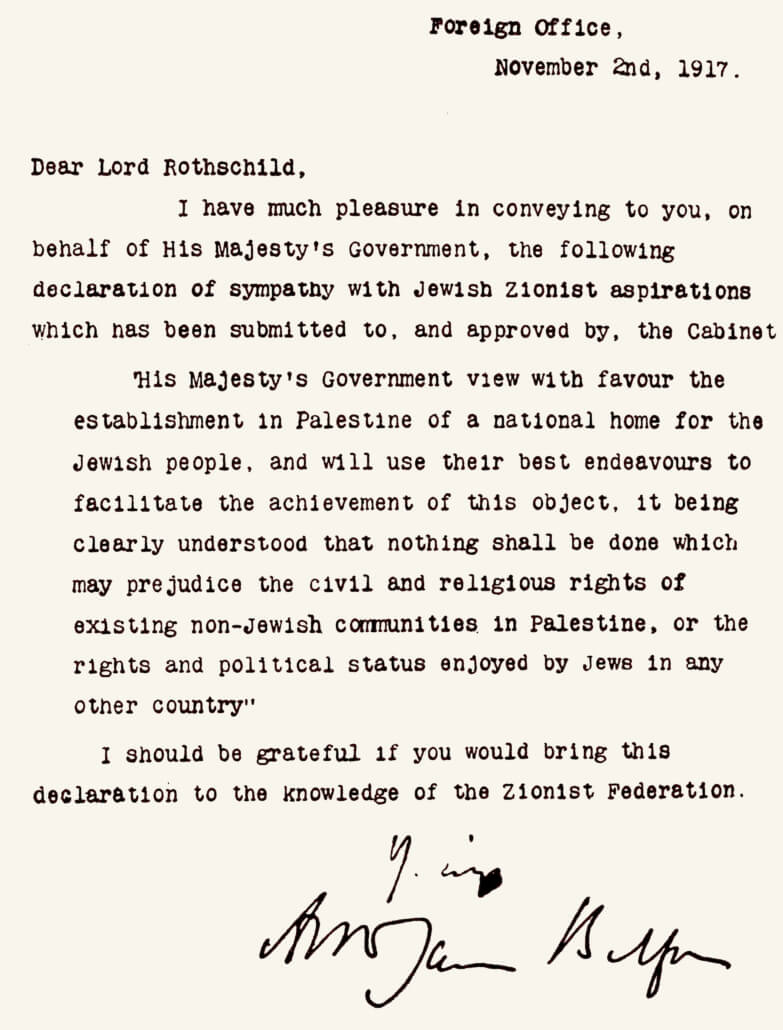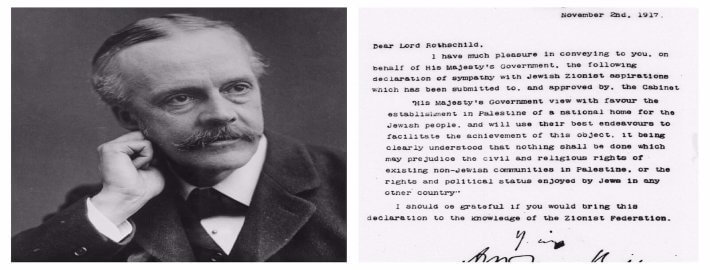The Balfour Declaration
The Balfour Declaration: Unveiling the Roots of the Israeli-Palestinian Conflict
The Balfour Declaration is one of the most significant documents in Middle Eastern history. Issued on November 2, 1917, by British Foreign Secretary Arthur James Balfour, this short letter had long-lasting effects on geopolitics. It promised support for “the establishment in Palestine of a national home for the Jewish people.”

What Was the Balfour Declaration?
The declaration came in the form of a letter addressed to Lord Rothschild, a leader of the British Jewish community. It expressed the British government’s support for Zionist aspirations. The letter was only 67 words long, but its implications were vast. You can read the full text on Wikipedia..
Context: World War I and British Strategy
During World War I, the British sought allies to weaken the Ottoman Empire, which controlled much of the Middle East. At the same time, they made multiple, sometimes conflicting, promises. The Balfour Declaration was one such promise, aimed at gaining support from Jewish communities around the world, especially in the U.S. and Russia.
Reactions and Conflicts
While Zionists welcomed the declaration, Palestinian Arabs saw it as a betrayal. The British had also promised Arab independence in exchange for a revolt against the Ottomans. This dual promise set the stage for future conflicts. Tensions escalated as Jewish immigration increased during the British Mandate in Palestine.
Long-Term Impact on the Middle East
The Balfour Declaration laid the foundation for the modern Israeli-Palestinian conflict. It led to the establishment of the State of Israel in 1948, followed by a series of wars and ongoing disputes. Palestinian displacement, resistance movements, and regional instability can all trace roots back to this document.
Why Does the Balfour Declaration Matter Today?
Over 100 years later, the effects of the Balfour Declaration are still felt. Understanding this history helps explain current geopolitical tensions in the Middle East. It also sheds light on why peace negotiations remain so complex. The declaration is often referenced in political debates, educational curriculums, and documentaries.
Criticism and Modern Debate
Critics argue that the British had no right to promise land they did not own. Others say it set a precedent for Western interference in the region. Palestinian advocates view it as a colonial imposition, while Zionists see it as a milestone for Jewish self-determination. Both views continue to shape public opinion and policy.
External Resources for Deeper Learning
Why Visitors to JordanMaxwellVideos.com Should Care
The Balfour Declaration is a key piece in understanding global power shifts, religious agendas, and geopolitical manipulation. It’s not just history—it’s a blueprint that shaped the modern world.




